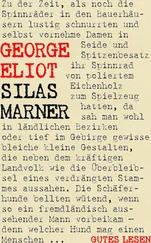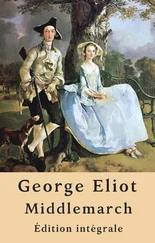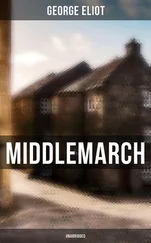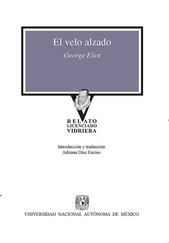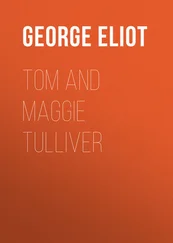George Eliot - Felix Holt, the Radical
Здесь есть возможность читать онлайн «George Eliot - Felix Holt, the Radical» — ознакомительный отрывок электронной книги совершенно бесплатно, а после прочтения отрывка купить полную версию. В некоторых случаях можно слушать аудио, скачать через торрент в формате fb2 и присутствует краткое содержание. Жанр: foreign_antique, foreign_prose, на английском языке. Описание произведения, (предисловие) а так же отзывы посетителей доступны на портале библиотеки ЛибКат.
- Название:Felix Holt, the Radical
- Автор:
- Жанр:
- Год:неизвестен
- ISBN:нет данных
- Рейтинг книги:3 / 5. Голосов: 1
-
Избранное:Добавить в избранное
- Отзывы:
-
Ваша оценка:
- 60
- 1
- 2
- 3
- 4
- 5
Felix Holt, the Radical: краткое содержание, описание и аннотация
Предлагаем к чтению аннотацию, описание, краткое содержание или предисловие (зависит от того, что написал сам автор книги «Felix Holt, the Radical»). Если вы не нашли необходимую информацию о книге — напишите в комментариях, мы постараемся отыскать её.
Felix Holt, the Radical — читать онлайн ознакомительный отрывок
Ниже представлен текст книги, разбитый по страницам. Система сохранения места последней прочитанной страницы, позволяет с удобством читать онлайн бесплатно книгу «Felix Holt, the Radical», без необходимости каждый раз заново искать на чём Вы остановились. Поставьте закладку, и сможете в любой момент перейти на страницу, на которой закончили чтение.
Интервал:
Закладка:
George Eliot
Felix Holt, the Radical
INTRODUCTION
Five-and-thirty years ago the glory had not yet departed from the old coach roads: the great roadside inns were still brilliant with well-polished tankards, the smiling glances of pretty barmaids, and the repartees of jocose hostlers; the mail still announced itself by the merry notes of the horn; the hedge-cutter or the rick-thatcher might still know the exact hour by the unfailing yet otherwise meteoric apparition of the pea-green Tally-ho or the yellow Independent; and elderly gentlemen in pony-chaises, quartering nervously to make way for the rolling, swinging swiftness, had not ceased to remark that times were finely changed since they used to see the pack-horses and hear the tinkling of their bells on this very highway.
In those days there were pocket boroughs, a Birmingham unrepresented in Parliament and compelled to make strong representations out of it, unrepealed corn-laws, three-and-sixpenny letters, a brawny and many-breeding pauperism, and other departed evils; but there were some pleasant things, too, which have also departed. Non omnia grandior ætas quæ fugiamus habet , says the wise goddess: you have not the best of it in all things, O youngsters! the elderly man has his enviable memories, and not the least of them is the memory of a long journey in mid-spring or autumn on the outside of a stage coach. Posterity may be shot, like a bullet through a tube, by atmospheric pressure, from Winchester to Newcastle: that is a fine result to have among our hopes; but the slow, old fashioned way of getting from one end of our country to the other is the better thing to have in the memory. The tube-journey can never lend much to picture and narrative; it is as barren as an exclamatory O! Whereas, the happy outside passenger, seated on the box from the dawn to the gloaming, gathered enough stories of English life, enough of English labors in town and country, enough aspects of earth and sky, to make episodes for a modern Odyssey. Suppose only that his journey took him through that central plain, watered at one extremity by the Avon, at the other by the Trent. As the morning silvered the meadows with their long lines of bushy willows marking the water-courses, or burnished the golden corn-ricks clustered near the long roofs of some midland homestead, he saw the full-uddered cows driven from their pasture to the early milking. Perhaps it was the shepherd, head-servant of the farm, who drove them, his sheep-dog following with a heedless, unofficial air, as of a beadle in undress. The shepherd, with a slow and slouching walk, timed by the walk of grazing beasts, moved aside, as if unwillingly, throwing out a monosyllabic hint to his cattle; his glance, accustomed to rest on things very near the earth, seemed to lift itself with difficulty to the coachman. Mail or stage coach for him belonged to the mysterious distant system of things called "Gover'ment," which, whatever it might be, was no business of his, any more than the most outlying nebula or the coal-sacks of the southern hemisphere: his solar system was the parish; the master's temper and the casualties of lambing-time were his region of storms. He cut his bread and bacon with his pocket-knife, and felt no bitterness except in the matter of pauper laborers and the bad-luck that sent contrarious seasons and the sheep-rot. He and his cows were soon left behind, and the homestead, too, with its pond overhung by elder-trees, its untidy kitchen-garden and cone-shaped yew-tree arbor. But everywhere the bushy hedgerows wasted the land with their straggling beauty, shrouded the grassy borders of the pastures with catkined hazels, and tossed their long blackberry branches on the corn-fields. Perhaps they were white with May, or starred with pale pink dog-roses; perhaps the urchins were already nutting among them, or gathering the plenteous crabs. It was worth the journey only to see those hedgerows, the liberal homes of unmarketable beauty – of the purple blossomed, ruby-berried nightshade, of the wild convolvulus climbing and spreading in tendriled strength till it made a great curtain of pale-green hearts and white trumpets, of the many-tubed honey-suckle which, in its most delicate fragrance, hid a charm more subtle and penetrating than beauty. Even if it were winter, the hedgerows showed their coral, the scarlet haws, the deep-crimson hips, with lingering brown leaves to make a resting-place for the jewels of the hoar-frost. Such hedgerows were often as tall as the laborers' cottages dotted along the lanes, or clustered into a small hamlet, their little dingy windows telling, like thick-filmed eyes, of nothing but the darkness within. The passenger on the coach-box, bowled along above such a hamlet, saw chiefly the roofs of it: probably it turned its back on the road, and seemed to lie away from everything but its own patch of earth and sky, away from the parish church by long fields and green lanes, away from all intercourse except that of tramps. If its face could be seen, it was most likely dirty; but the dirt was Protestant dirt, and the big, bold, gin-breathing tramps were Protestant tramps. There was no sign of superstition near, no crucifix or image to indicate a misguided reverence: the inhabitants were probably so free from superstition that they were in much less awe of the parson than of the overseer. Yet they were saved from the excess of Protestantism by not knowing how to read, and by the absence of handlooms and mines to be the pioneers of Dissent: they were kept safely in the via media of indifference, and could have registered themselves in the census by a big black mark as members of the Church of England.
But there were trim cheerful villages too, with a neat or handsome parsonage and gray church set in the midst; there was the pleasant tinkle of the blacksmith's anvil, the patient cart horses waiting at his door; the basket-maker peeling his willow wands in the sunshine; the wheelwright putting his last touch to a blue cart with red wheels; here and there a cottage with bright transparent windows showing pots full of blooming balsams or geraniums, and little gardens in front all double daisies or dark wallflowers; at the well, clean and comely women carrying yoked buckets, and toward the free school small Britons dawdling on, and handling their marbles in the pockets of unpatched corduroys adorned with brass buttons. The land around was rich and marly, great corn-stacks stood in the rick-yards – for the rick-burners had not found their way hither; the homesteads were those of rich farmers who paid no rent, or had the rare advantage of a lease, and could afford to keep the corn till prices had risen. The coach would be sure to overtake some of them on their way to their outlying fields or to the market-town, sitting heavily on their well-groomed horses, or weighing down one side of an olive-green gig. They probably thought of the coach with some contempt, as an accommodation for people who had not their own gigs, or who, wanting to travel to London and such distant places, belonged to the trading and less solid part of the nation. The passenger on the box could see that this was the district of protuberant optimists, sure that old England was the best of all possible countries, and that if there were any facts which had not fallen under their own observation, they were facts not worth observing: the district of clean little market-towns without manufactures, of fat livings, an aristocratic clergy, and low poor-rates. But as the day wore on the scene would change: the land would begin to be blackened with coal-pits, the rattle of handlooms to be heard in hamlets and villages. Here were powerful men walking queerly with knees bent outward from squatting in the mine, going home to throw themselves down in their blackened flannel and sleep through the daylight, then rise and spend much of their high wages at the ale-house with their fellows of the Benefit Club; here the pale eager faces of the handloom-weavers, men and women, haggard from sitting up late at night to finish the week's work, hardly begun till the Wednesday.
Читать дальшеИнтервал:
Закладка:
Похожие книги на «Felix Holt, the Radical»
Представляем Вашему вниманию похожие книги на «Felix Holt, the Radical» списком для выбора. Мы отобрали схожую по названию и смыслу литературу в надежде предоставить читателям больше вариантов отыскать новые, интересные, ещё непрочитанные произведения.
Обсуждение, отзывы о книге «Felix Holt, the Radical» и просто собственные мнения читателей. Оставьте ваши комментарии, напишите, что Вы думаете о произведении, его смысле или главных героях. Укажите что конкретно понравилось, а что нет, и почему Вы так считаете.


